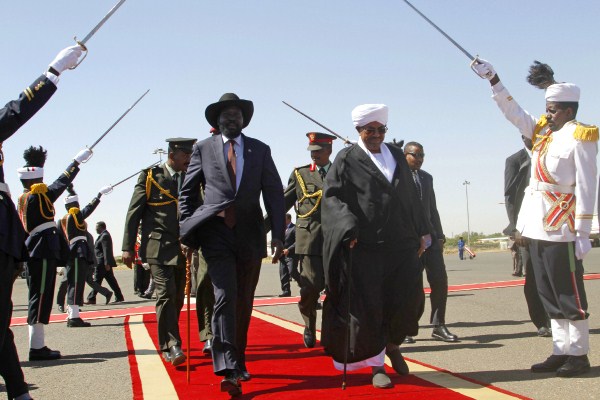Last month, Ibrahim Ghandour, the chief assistant to Sudanese President Omar al-Bashir, and the country’s foreign minister, Ali Karti, were both in Washington, the highest-level visit to the United States by Sudanese officials in decades. Their aim was to persuade the U.S. to lift financial sanctions and help ease relief of the country’s crippling $40 billion external debt. They won a gesture, as U.S. President Barack Obama’s administration relaxed communications sanctions to allow the export of smartphones, computers, radios and other devices to Sudan.
Normalization of relations with Washington is Khartoum’s enduring foreign policy challenge. It has eluded Bashir since he seized power in 1989, backed by the Muslim Brotherhood, and plunged his country deep into regional isolation. At the instigation of his party’s Islamist mentor, Sheikh Hassan al-Turabi, Bashir supported Saddam Hussein’s invasion of Kuwait in 1990 and hosted Osama bin Laden for years before expelling him under pressure from the U.S. and Sudan’s neighbors in 1996. This came on top of an earlier suspension from the International Monetary Fund (IMF) in 1986 for nonpayment of arrears.
Today, Sudan is still under U.S. sanctions and debarred from concessional finance from the World Bank and IMF. The original reasons for each of these sanctions no longer applies—notably, Sudan has proven a good partner in counterterrorism—but hostility to Sudan is a rare area of bipartisan consensus in Congress. It isn’t hard to see why: In 2004, the U.S. determined that genocide had been committed in Darfur, and the prosecutor of the International Criminal Court (ICC) held Bashir responsible.

